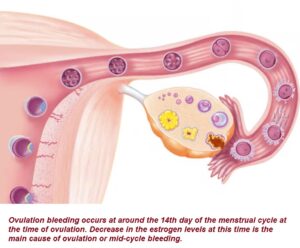Abdominal Pain During Early Pregnancy: Understanding the Causes and Solutions
Pregnancy is an exciting time, but it can also bring unexpected challenges. Recently, I had a consultation with a young woman about 8 weeks pregnant who was experiencing abdominal pain. Her concerns are common among expectant mothers, and I’d like to share some insights to help others who may be facing similar issues.
Understanding Abdominal Pain in Early Pregnancy
Abdominal pain during early pregnancy is quite common and can have various causes. In this patient’s case, after a thorough examination and discussion, we identified three potential reasons for her discomfort:
1. Intestinal Cramps: Often mistaken for uterine cramps, these can be caused by gas buildup and constipation.
2. Normal Uterine Cramps: As the uterus grows, it pulls on surrounding ligaments, causing mild pain.
3. Miscarriage: While unlikely in this case due to the absence of vaginal bleeding, it’s always a concern that needs to be ruled out.
What Causes Abdominal Pain at 8 Weeks Pregnant?
At 8 weeks pregnant, abdominal pain can be caused by several factors:
– Uterine expansion
– Ligament stretching
– Hormonal changes
– Constipation and gas
– Urinary tract infections (UTIs)
It’s important to note that mild cramping is often normal during this stage of pregnancy. However, severe or persistent pain should always be evaluated by a healthcare provider. If you’re experiencing pain and unsure what it could mean, it might be helpful to review some insightful health articles on abdominal pain during pregnancy.
Is Abdominal Pain Normal in Early Pregnancy?
Yes, some degree of abdominal pain or discomfort is normal in early pregnancy. As your body adapts to the growing fetus, you may experience:
– Mild cramping
– Stretching sensations
– Occasional sharp pains
These symptoms are usually harmless and related to the normal changes occurring in your body. However, it’s crucial to monitor your symptoms and report any concerns to your healthcare provider. For more information on what to expect, explore the resource on the symptoms of pregnancy.
Why Am I Getting Abdominal Cramps at 8 Weeks Pregnant?
Abdominal cramps at 8 weeks pregnant can occur for several reasons:
1. Uterine Growth: Your uterus is expanding to accommodate the growing fetus.
2. Ligament Stretching: The ligaments supporting your uterus are stretching, causing discomfort.
3. Digestive Issues: Hormonal changes can lead to constipation and gas, causing cramping.
4. Braxton Hicks Contractions: Though rare at 8 weeks, some women may experience these practice contractions.
Remember, while mild cramps are normal, severe or persistent pain should be evaluated by a healthcare professional. For additional guidance, consult the section about early pregnancy symptoms that might warrant more attention.
Key Takeaways for Expectant Mothers
1. **Don’t Panic**: Mild abdominal pain is often normal in early pregnancy.
2. **Monitor Your Symptoms**: Keep track of the intensity, duration, and frequency of your pain.
3. **Stay Hydrated and Eat Fiber-Rich Foods**: This can help prevent constipation and reduce gas-related discomfort.
4. **Get Regular Check-ups**: Regular prenatal visits can help catch any potential issues early.
5. **Trust Your Instincts**: If something feels wrong, don’t hesitate to contact your healthcare provider.
Every pregnancy is unique, and it’s crucial to have a reliable support system. If you’re experiencing symptoms that are unusual for you or feel concerned about your pregnancy, you can benefit from seeking advice through an online gynecologist consultation.
Do you have any questions about your pregnancy? Feel free to ask in the comments below, and let’s work together to ensure a healthy and comfortable pregnancy journey!
CTA: Concerned About Abdominal Pain During Pregnancy?
If you’re experiencing abdominal pain or other symptoms and are unsure about what they might mean for your pregnancy, it’s important to talk to a qualified healthcare provider who can listen to your concerns and guide you with reassurance. Consult a gynecologist online today to take the next step in addressing your concerns from the comfort of your home.


